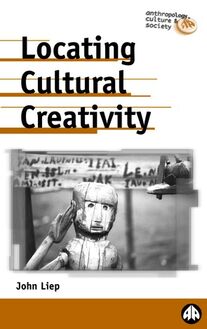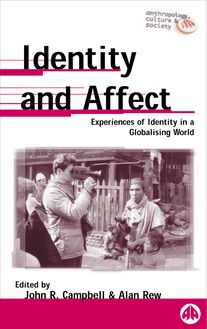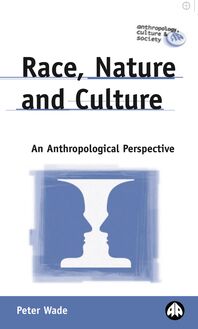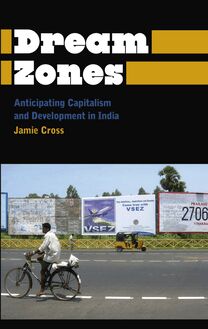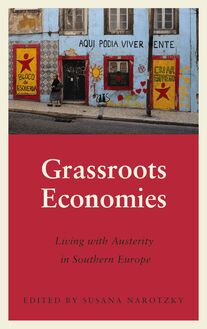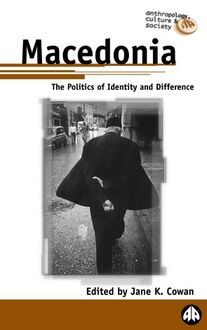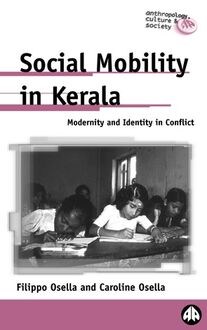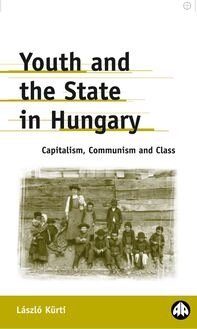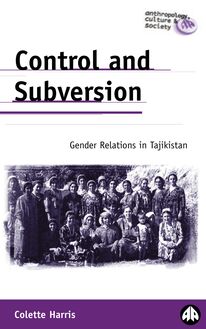Globalisation , livre ebook
179
pages
English
Ebooks
2003
Vous pourrez modifier la taille du texte de cet ouvrage
Obtenez un accès à la bibliothèque pour le consulter en ligne En savoir plus
Découvre YouScribe en t'inscrivant gratuitement
Découvre YouScribe en t'inscrivant gratuitement
179
pages
English
Ebooks
2003
Vous pourrez modifier la taille du texte de cet ouvrage
Obtenez un accès à la bibliothèque pour le consulter en ligne En savoir plus
Publié par
Date de parution
20 juin 2003
Nombre de lectures
3
EAN13
9781783710539
Langue
English
The essays show how the focus has shifted from traditional studies of specific sites, towards the movements and shifts associated with increasing migration and population flows - the result of living in an increasingly globalised world.
Written by a range of distinguished anthropologists, it offers innovative new approaches to the discipline in the light of these changes, making it indispensable as a teaching text, at higher levels, and as mandatory reading for practitioners and researchers in a wide range of merging disciplines.
Topics explored include the methodology of studying on the internet; global and spatial identities in the Caribbean; shifting boundaries in coastal communities; the anthropology of political life; issues of law and the flow of human substances; and the diffusion of moral values created by globalisation.
1. Thomas Hylland Eriksen: Introduction
2. Ulf Hannerz: Several sites in one: On multisited fieldwork.
3. Daniel Miller and Don Slater: On the methodology of studying the Internet
4. Karen Fog Olwig: Global places and spatial identities: perspectives from Caribbean research
5. Christian Krohn-Hansen: Into our time: the anthropology of political life in the era of globalisation
6. Marianne Lien: Shifting boundaries of a coastal community: tracing changes on the margin
7. Knut Nustad: Considering global/local relations: beyond dualism
8. Simone Abram: Anthropologies in policies, anthropologies in places
9. Sarah Lund: Commemorating global acts: A Norwegian way of holding an emigrant world together
10. Marit Melhuus: Exchange matters: issues of law and the flow of human substances
11. Signe Howell: The diffusion of moral values in a global perspective
12. Keith Hart: Epilogue
Publié par
Date de parution
20 juin 2003
Nombre de lectures
3
EAN13
9781783710539
Langue
English
Anthropology, Culture and Society
Series Editors:
Professor Thomas Hylland Eriksen, University of Oslo
Dr Katy Gardner, University of Sussex
Dr Jon P. Mitchell, University of Sussex
RECENT TITLES
Land, Law and Environment:
Mythical Land, Legal Boundaries
Edited by A LLEN A BRAMSON AND
D IMITRIOS T HEODOSSOPOULOS
The Trouble with Community:
Anthropological Reflections
on Movement, Identity and Collectivity
V ARED A MIT AND N IGEL R APPORT
Anthropology and the Will to Meaning:
A Postcolonial Critique
V ASSOS A RGYROU
The War of Dreams:
Exercises in Ethno-Fiction
M ARC A UGÉ
Orange Parades:
The Politics of Ritual, Tradition and Control
D OMINIC B RYAN
Risk Revisited
Edited by P AT C APLAN
Macedonia:
The Politics of Identity and Difference
Edited by J ANE K. C OWAN
Ethnicity and Nationalism:
Anthropological Perspectives
T HOMAS H YLLAND E RIKSEN
A History of Anthropology
T HOMAS H YLLAND E RIKSEN AND
F INN S IVERT N IELSON
Small Places, Large Issues:
An Introduction to Social
and Cultural Anthropology
T HOMAS H YLLAND E RIKSEN
Life on the Outside:
The Tamil Diaspora and
Long-Distance Nationalism
Ø IVIND F UGLERUD
Anthropology, Development and
the Post-modern Challenge
K ATY G ARDNER AND D AVID L EWIS
Power and its Disguises:
Anthropological Perspectives on Power
J OHN G LEDHILL
Youth and the State in Hungary:
Capitalism, Communism and Class
L ÁSZLÓ K ÜRTI
Locating Cultural Creativity
Edited by J OHN L IEP
Cord of Blood:
Possession and the Making of Voodoo
N ADIA L OVELL
Ethnography and Prostitution in Peru
L ORRAINE N ENCEL
Witchcraft, Power and Politics:
Exploring the Occult in
the South African Lowveld
I SAK A. N IEHAUS with E LIAZAAR M OHLALA
AND K ALLY S HOKANE
Anthropology and Cultural Studies
Edited by S TEPHEN L. N UGENT AND C RIS S HORE
Power, Community and the State:
The Political Anthropology of
Organisation in Mexico
M ONIQUE N UIJTEN
Social Mobility in Kerala:
Modernity and Identity in Conflict
F ILIPPO O SELLA AND C AROLINE O SELLA
Negotiating Local Knowledge:
Power and Identity in Development
Edited by J OHAN P OTTIER , A LAN B ICKER
AND P AUL S ILLITOE
Class, Nation and Identity:
The Anthropology of Political Movements
J EFF P RATT
Bearing Witness
F IONA C. R OSS
Landscape, Memory and History:
Anthropological Perspectives
Edited by P AMELA J. S TEWART
AND A NDREW S TRATHERN
Race, Nature and Culture:
An Anthropological Perspective
P ETER W ADE
GLOBALISATION
First published 2003
by PLUTO PRESS
345 Archway Road, London N6 5AA
and 22883 Quicksilver Drive,
Sterling, VA 20166-2012, USA
www.plutobooks.com
Copyright © Thomas Hylland Eriksen 2003
The right of the individual contributors to be identified as
the author of this work has been asserted by them in accordance
with the Copyright, Designs and Patents Act 1988
British Library Cataloguing in Publication Data
A catalogue record for this book is available from
the British Library
ISBN 0 7453 2060 0 hardback
ISBN 0 7453 2059 7 paperback
ISBN 978 1 7837 1053 9 ePub
Library of Congress Cataloging in Publication Data
Globalisation: studies in anthropology / edited by Thomas Hylland Eriksen.
p. cm. – (Anthropology, culture, and society)
Includes bibliographical references.
ISBN 0-7453-2060-0 (hbk) – ISBN 0-7453-2059-7 (pbk) – ISBN 9 7817 8371 0 539 (ePub)
1. Anthropology. 2. Globalization. 3. Law and anthropology. I. Eriksen, Thomas Hylland. II. Series.
GN27. G56 2003
301 dc21
2003007062
10 9 8 7 6 5 4 3 2 1
Designed and produced for Pluto Press by
Chase Publishing Services, Fortescue, Sidmouth EX10 9QG
Typeset from disk by Stanford DTP Services, Towcester
Printed and bound in the European Union
by Antony Rowe, Chippenham and Eastbourne, England
CONTENTS
Acknowledgements
1. Introduction
Thomas Hylland Eriksen
2. Several Sites in One
Ulf Hannerz
3. Ethnography and the Extreme Internet
Daniel Miller and Don Slater
4. Global Places and Place-Identities – Lessons from Caribbean Research
Karen Fog Olwig
5. Into Our Time: The Anthropology of Political Life in the Era of Globalisation
Christian Krohn-Hansen
6. Shifting Boundaries of a Coastal Community: Tracing Changes on the Margin
Marianne E. Lien
7. Considering Global/Local Relations: Beyond Dualism
Knut G. Nustad
8. Anthropologies in Policies, Anthropologies in Places: Reflections on Fieldwork ‘in’ Documents and Policies
Simone Abram
9. Commemorating Global Acts: A Norwegian Way of Holding an Emigrant World Together
Sarah Lund
10. Exchange Matters: Issues of Law and the Flow of Human Substances
Marit Melhuus
11. The Diffusion of Moral Values in a Global Perspective
Signe Howell
12. Epilogue: Studying World Society
Keith Hart
Contributors
Index
ACKNOWLEDGEMENTS
Most of the chapters that make up this book are based on papers presented at the workshop ‘Transnational Flows: Methodological and epistemological issues’, Oslo, 6–7 June 2001. The workshop was organised by the research project Transnational Flows of Substances and Concepts, which is directed by Marianne E. Lien and supported financially by the Norwegian Research Council in the period 2001–04.
Chapter 2 is adapted from the introduction to a book edited by Ulf Hannerz. Published only in Swedish (and entitled Flera fält i ett) the book showcases the breadth and scope of current transnational multi-sited research at the Department of Social Anthropology at Stockholm university. The references to Hannerz’s Stockholm colleagues generally refer to chapters in the book, and offer an insight into some of the accomplishments made, and some of the methodological problems encountered, in this pioneering research environment.
1 INTRODUCTION
Thomas Hylland Eriksen
Although the term ‘globalisation’ has been common in anthropology and neighbouring disciplines only since around 1990, it has spawned an impressive range of books, journal articles and academic conferences. In the mid-1990s, it actually seemed more difficult to find a major sociology or social anthropology conference that did not feature the word prominently in its programme, than to find one that did.
In spite of the flurry of interdisciplinary activity around the term ‘globalisation’, the need for new studies will not go away until the phenomena they describe disappear. Moreover, there still remains necessary work to be done on the conceptual and methodological basis of globalisation studies. As can only be expected of a research field that has grown too fast, globalisation studies have yet to be connected properly to the disciplines and intellectual traditions they have sprung from. In the case of social anthropology, there has been a tendency to emphasise the newness of globalisation studies. The obligatory contrast to Malinowski’s fieldwork is perhaps drawn, some remarks are made about the interconnectedness of everything, the hybridity of cultural identities and the irrelevance of what we may perhaps call the ‘quadruple S’ (synchronous single-society study) – but rarely do we see a sustained attempt to show the continuities between current research on globally embedded networks and mainstream twentieth-century anthropology.
Perhaps for the sake of argument, it can be tempting to highlight and pick on statements and positions that are as far removed from one’s own as possible. This approach, perhaps underpinned by selected quotations, may offer striking and convincing contrasts between contemporary work and functionalism or structural-func-tionalism in Britain, and some of the dominant post-Boas schools in the USA, such as culture-and-personality and Geertzian hermeneutics. However, closer examination more often than not reveals that many of the problems grappled with today (flows, ambiguities, relativity of boundaries, etc. ) were by no means foreign to earlier generations of anthropologists. The contrasts are not spurious, but they need not be exaggerated.
The approach of this book does not, in other words, consist in advertising the newness of globalisation research. Rather, I will devote most of this introduction to arguing that the new empirical domains belong, in important ways, to the mainstream of anthropological research. Of course, we do not wish to argue that nothing has changed. The contemporary world is one of global embeddedness, ubiquitous rights movements and reflexive identity politics, universal capitalism and globally integrated financial markets, transnational families, biotechnology and urbanisation; in a word, it is in substantial ways different from the world in which twentieth-century anthropology developed. It is a trivial fact that this must be reflected in research agendas. The question that we find it pertinent to raise concerns the implications of shifts in empirical concerns for theory and methodology. In order to begin to answer it, I now turn to an attempt to anchor studies of transnational processes to the mainstream in twentieth-century anthropology, showing eventually at which crucial junctions the present must depart from the past.
ANTHROPOLOGICAL LINEAGES
If the word is recent, the concerns that animate research on globalisation, or transnational flows, are not. The affinity between globalisation and early twentieth-century diffusionism is sometimes remarked upon (e.g. Barnard, 2000: 168), thus placing one of the latest fads in academia firmly in a lineage few are eager to see themselves as part of. The shortcomings of classic diffusionism – speculation about a patchily known past, poor contextualisation – can nevertheless easily be overcome in studies of contemporary transnational flows, provided the methodology is sound.
A less common, but hardly less relevant parallel can be drawn to evolutionism. Since studies of globalisation al
